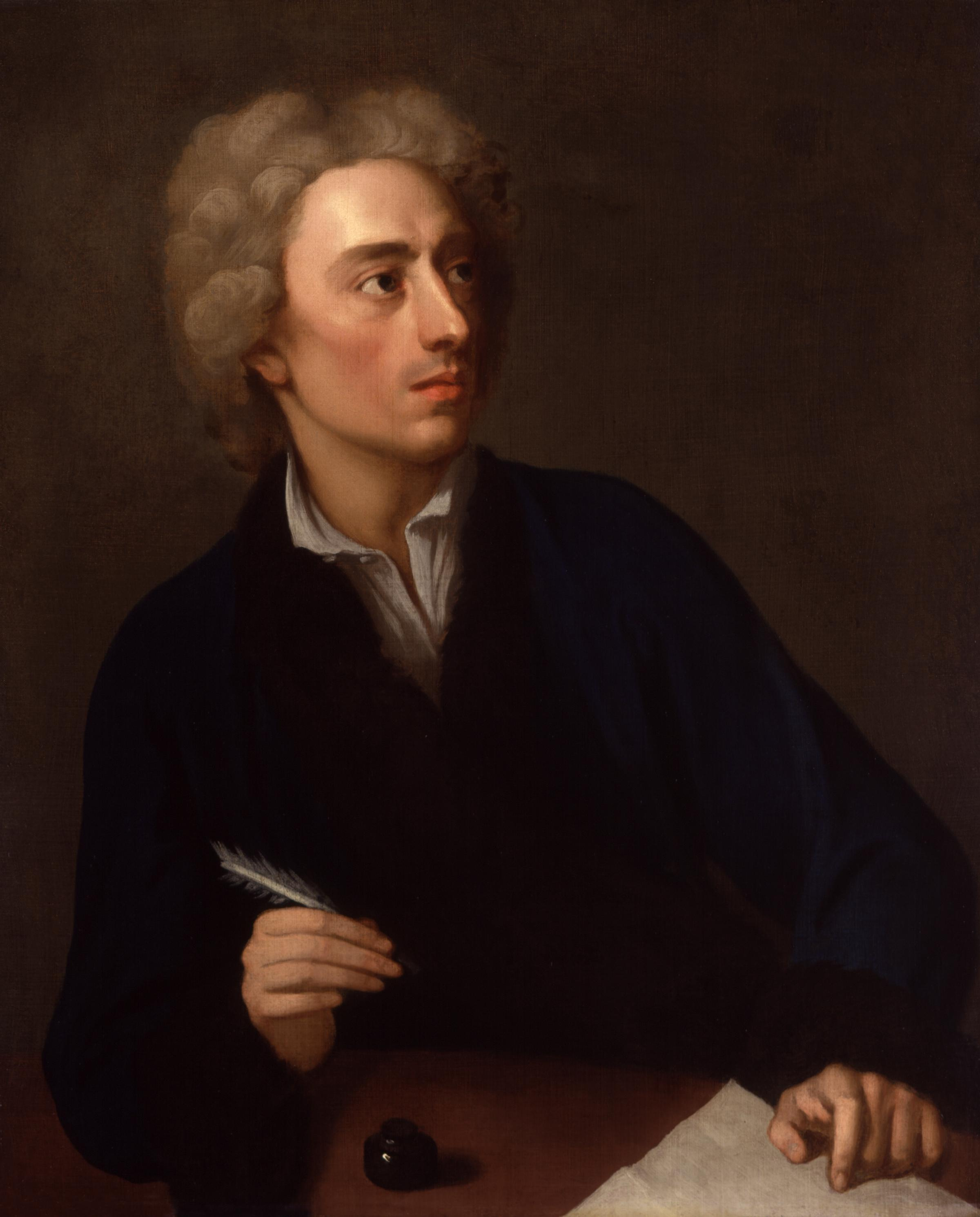Alexander Pope Frases famosas
“A luz e as trevas estão misturadas no caos do homem.”
This light and darkness in our chaos join'd
"Essay on Man" in: "The Works of Alexander Pope", Esq: Esq. with Notes and Illustrations by Himself and Others. To which are Added, a New Life of the Author, an Estimate of His Poetical Character and Writings, and Occasional Remarks - vol. 5, Página 105 http://books.google.com.br/books?id=KCQOAAAAQAAJ&pg=PA105, Printed for J. Rivington,
Citações de homens de Alexander Pope
“Feliz do homem que não espera nada, pois nunca terá desilusões.”
Blessed is he who expects nothing, for he shall never be disappointed.
carta de 6 de outubro de 1727, in: "The works of Alexander Pope. With his last corrections, additions, and improvements. Publ. by mr. Warburton. With occasional notes." - Página 126 http://books.google.com.br/books?id=V0oVAAAAQAAJ&pg=PA126, Alexander Pope - 1751
Alexander Pope frases e citações
“Errar é humano; perdoar é divino.”
To err is human, to forgive divine
"Essay on Criticism" [Ensaio sobre a crítica] ( Escrito no Ano MDCCIX, http://books.google.com.br/books?id=O0IfAAAAMAAJ&pg=PA241&dq=To+err+is+human,+to+forgive+divine+Alexander+Pope&lr=&client=firefox-a#PPA169,M1 primeira publicação na Spectator, N º 65, 15 de maio de 1711); in: "The Works of Alexander Pope, Esq" http://books.google.com.br/books?id=O0IfAAAAMAAJ&pg=PA241&dq=To+err+is+human,+to+forgive+divine+Alexander+Pope&lr=; Por Alexander Pope, Joseph Warton; Publicado por Printed for B. Law, J. Johnson, C. Dilly [and others], 1797, página 236
“Uma pessoa honesta é a obra mais maravilhosa de Deus.”
An honest man's the noblest work of God
"Essay on Man, Epistle IV. Of the Nature and State of Man with repect to Happiness"; in http://books.google.com.br/books?id=ZGRj7T5ZrFMC&pg=PA143&dq=%22An+honest+man%27s+the+noblest+work+of+God%22+Alexander+Pope&lr=&as_brr=3: "The Works of Alexander Pope"; Por Alexander Pope, Joseph Warton; Publicado por Printed by J.F. Dove for Richard Priestley, 1822; página 143
Poema de Alexander Pope, citado no filme "Brilho Eterno de uma Mente sem lembranças"
Happy the man, whose wish and care. A few paternal acres bound, Content to breathe his native air. In his own ground.
Letters of Alexander Pope and several eminent persons from the year 1705 to 1735 - Página 64 http://books.google.com.br/books?id=u075WPEcfDQC&pg=PA64, Alexander Pope - 1735 - 266 páginas
Variante: Aquele que diz uma mentira não calcula a pesada carga que põe em cima de si, pois tem de inventar infinidade delas para sustentar a primeira.
Alexander Pope: Frases em inglês
Stanza 2
Fonte: The Universal Prayer (1738)
Fonte: The Works of Mr. Alexander Pope (1717), Elegy to the Memory of an Unfortunate Lady, Line 45. Compare Pope's The Odyssey of Homer, Book XVIII, line 269
Preface
The Works of Mr. Alexander Pope (1717)
Stanza 1
Fonte: The Dying Christian to His Soul (1712)
Remark (1738?) quoted in Anecdotes, Observations, and Characters, of Books and Men (1820) by Joseph Spence [published from the original papers; with notes, and a life of the author, by Samuel Weller Singer]; "Spence's Anecdotes", Section IV. 1737...39. p. 200
“Beauties in vain their pretty eyes may roll;
Charms strike the sight, but merit wins the soul.”
Canto V, line 33
The Rape of the Lock (1712, revised 1714 and 1717)
